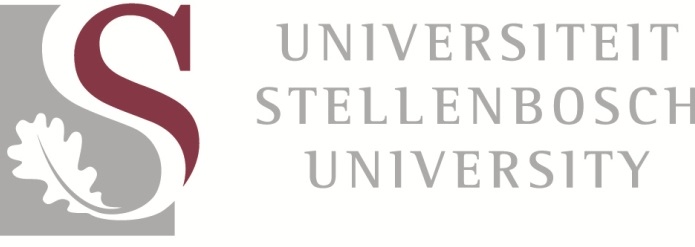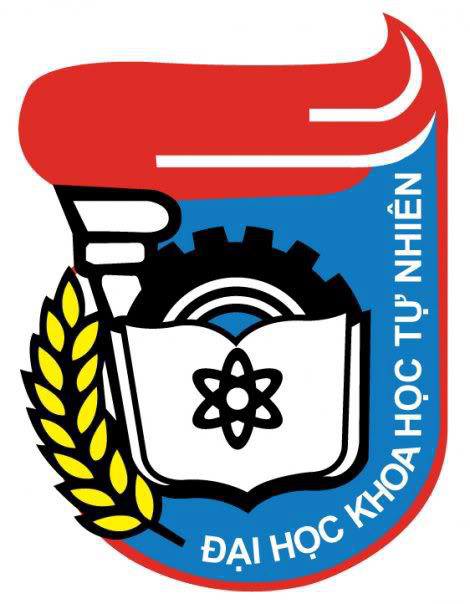Description:
TUM is acknowledged as an university of excellence in
Germany concerning research, development and education having 13 faculties, 4 integrative research
centers and 6 scientific core institutes.
507 professors do highly qualified research and teach nearly 3,6000
students, 33,000 being female and 20,000 coming from foreign countries.
885 PhDs awarded doctoral degree in 2012. TUM offers a graduate school
that is open for hosted PhDs. A huge scientific library is located on
the campus, enabling researchers' online access to most research
journals. TUM is part of the Weihenstephan Center of Forestry. This
association of academic, applied science and practice related research
and education institution offers a communication platform between
forest research and practice. The FGYS and the IFM are part of the School
of Life Science at TUM forming a major faculty of TUM. FGYS has
long-term expertise in forest mensuration, analysis of forest ecosystem
functioning and modelling of forest growth. Main research foci are
analysing mixing effects on single trees and stand level. Staff members
of the chair command enhanced skills in applied statistics and
dendroecological analyses. IFM has outstanding
experience in land use research and optimization und risk to obtain
sustainable management strategies. |
|
Description:
The
University of Padova (UP),
will participate to the proposal with the Department TESAF.
New technologies, tradition, interdisciplinary studies and historical
importance are key elements that make the Department TESAF stand
out as a reference point in land management, agriculture and forestry
both at local as at European scale. The Department TESAF reflects
a diversity of disciplines, including ecology, forest management, land
and forestry economics and policy, hydrology, soil conservation and
agricultural and forest engineering. The Department TESAF intensively
works with a multidisciplinary approach on forest management practices,
harvesting and extraction technologies and on the socio-economic issues
for the wood sector. The Department TESAF has
currently active collaborations with local and regional administrations
as with private corporations to support the economical, technical and
environmental sustainability of the forest exploitation which will be a
key factor for the successful of project. The wide networking with
national wood biomass associations, forest owners and forest
enterprises association and local, regional and national public
institutions will be useful to compare, discuss and evaluate the
actions and the activities of the project. The main activity of the
Department TESAF is
related to the research and to transfer the research result at regional
and international scale. The management of the research and cooperation
activities is supported by 48 permanent researchers and teaching staff
and 30 technicians, librarians and administrative employees; the
Department TESAF is
currently hosts 40 PhD students. There has been a recent association
with TUM through academic and research collaborations over the past
recent years. The contacts with SU are also well established.
|
|
Description:
BFH has
about 6.000 enrolled students in six departments located throughout the
Canton of Bern, Switzerland. BFH pursues
an international strategy for student exchange while at the same time
close collaborating with national industry. Graduate students can take
advantage of exchange programs as the University of Applied Sciences
has multiple agreements with recognized institutions abroad. National
industry can profit from joint projects in which our results in applied
research are commercialized. HAFL as
one of the departments of BFH is
an accredited training and competence centre for forestry in
Switzerland. It plays a central role in the development and
implementation of novel solutions in sustainable forest management. Our
research and development is innovative, practical and need oriented. We
are both, nationally and internationally oriented.
|
|
Description:
The FAST conducts
research in diverse disciplines including ecology, botany, forest
management, restoration ecology, agricultural economics and
agricultural sciences and is specialized for mountain environments. The FAST has
a profile at the interdisciplinary level with focus on mountain
ecosystems. The FAST has
currently active collaborations with local and regional administrations
to support the economical, technical and environmental sustainability
of the mountain ecosystems management. The main activity of the FAST lies
in research and dissemination of research result from the local to the
international scale. The management of the research and cooperation
activities is supported by more than 40 permanent researchers and
teaching staff and more than 10 technicians, librarians and
administrative employees; the FAST currently
hosts 65 PhD students. There has been a recent association with TUM
through academic and research collaborations over the last years. The
contacts with UP and the US are also established. |
|
Description:
SGGW with
its 200-years tradition is the one of the oldest and largest academic
institution in Poland. At present, SGGW consists
of 13 faculties with over 1,300 university staff which teach 27,000
enrolled students. According to different national rankings, SGGW is
considered as the leader in terms of research quality, education and
innovation among all life science universities in Poland. Recently, SGGW has
been awarded for „The most innovative and creative university in Poland
at creating job perspectives”. SGGW collaborates
with 170 international partners from all continents. DS is
a part of Faculty of Forestry. DS has
a staff of 16 people which are focusing on the following research
areas: forest genetics and nurseries, spatial and temporal dynamics of
regeneration in managed and unmanaged forests; growth, dynamics and
structure of monoculture and mixed stands under the influence of
different silvicultural treatments; dynamics and structure of virgin
forests; optimization of silvicultural planning under climate change in
stands managed by improved shelterwood system and selection system;
close-to-nature silviculture for adapting temperate European forests to
climate change. In terms of education, we offer not only regular course
to enrolled students (>2000) and trainings for State Forests
Enterprise in Poland, but also an international master program in
Forest Information Technology (in collaboration with Eberswalde
University of Sustainable Development) and varied courses given in
English for Erasmus Students. Currently also 20 PhD students are
enrolled at DS. |
|
Description:
INIA is
an autonomous Public Research Organisation (OPI) of the Spanish
Ministry of Economy and Competitiveness. The Center for Forestry
Research (INIA-CIFOR) has the
functions of scientific research, technological development and
innovation, scientific-technical training, national and international
cooperation and the provision of scientific-technical services related
to the field of forestry. INIA-CIFOR works
in close collaboration with public research organisations, universities
and technological centres through mixed R&D projects and
collaborates with different institutions in Europe, America and Africa
and in international organizations (EFI, IUFRO, CGIAR-Biodiversity
International, CIFOR, ICRAF, EFIMED, Silva Mediterranea and EUFORGEN).
The main research objectives of the Department of Silviculture and
Management of Forest Systems focus on: spatial and temporal dynamics of
regeneration depending on silviculture and environment; forest growth,
dynamics and structure and the role of silviculture as adaptive
management strategy to climate change; characterization and valuation
of wood, non-wood forest products, services, wildlife, role as carbon
sinks; forest crops for the production of biomass as energy source;
forest modelling. |
|
Description:
UVA is
one of the most important centres of Higher Education in Spain. It
counts on four campuses -Valladolid, Palencia, Segovia and Soria-, over
100 degrees, 80 doctoral programs (14 with Honor Mention) and 68
postgraduate degree, accredited international relations and
prestigious research centres. On average, nearly 25,000 students enroll
each year, counts on more than 2,500 teachers and nearly 1,000 people
dealing with administration tasks and other services. Over 60% of
students do internships in companies and other institutions. It offers
a comprehensive range of double international degrees, and promotes the
transfer of research results. The UVA has 430 km2 for
researching activities, 5 buildings devoted exclusively to research, 4
Certified Laboratories Industry serving nearly 300 research
laboratories, 19 research institutes and all departments needed. It
just open new landmark Lab-building, called LUCIA (0% CO2 emissions;
0% energy consumption, with LEED Platinum certification and Green
Certification), with 2,100 m2 for
researching related to efficiency energy buildings and agrofood
(nutrition, food and dietary laboratories). The UVA manages
around 852 research projects financed through competitive public R+D+i
calls (European, national or regional), and approximately 500 contracts
and agreements aimed at the transfer of knowledge and technology,
amounting to an average value of over fifteen million Euros per annum.
Moreover, its researchers take part in almost 250 further projects and
contracts managed by other institutions. UVA has
been taking part in a very active way in different European projects,
at research or training level, during the last 20 years. There is a
long experience in international projects developed by different groups
of research in the University and different fields of knowledge. The
project in UVA will
be managed by the Office of European Projects of UVA,
located in the General Foundation of the University of Valladolid
(Fundación General de la Universidad de Valladolid – FGUVA) by specific
delegation since 1996. The agreement between both organizations
empowers FGUVA to manage the European projects in which researchers and
experts of UVA are
involved. The FGUVA is a non-profit institution totally controlled by UVA, created in order to handle the
administrative and financial tasks of UVA in
R&D European projects, including issues related to employment and
payment of personnel, purchase of equipment, consumables, etc. FGUVA
does not perform technical or scientific
work/ tasks in the project. The contribution of FGUVA is free of charge
and always
used under the premises of UVA. |
 |
Description:
SU is
acknowledged as a university of excellence in South Africa and Africa.
The Department of Forest and Wood Science has long been associated with TUM and UP through
research collaborations. The Department addresses the entire forestry
value chain in both teaching and its research activities. It addresses
all forest resources in the region, which include plantations, natural
forests and South Africa's vast woodlands areas. The research focus is
on Precision Forestry, Integrated Land-use Management, Bio-refining,
and Wood Quality through the value chain. Its particular strengths are
the analysis of forest ecosystem, modelling of forest growth and
dendro-ecological analyses. A combination of forest economics and
forest operations research has been at the forefront of its research
and outreach activities over the past 20 years. |
 |
Description:
VNU University of Science,
an integral part of Vietnam National University, Hanoi, ranks among a
few universities in Vietnam with long-standing tradition. VNU-HUS is a leading university of
Vietnam in Science and is
dedicated to conducting research in basic science and applied. The
University is committed to initiating, propagating and promoting
science knowledge; providing the society with a constant supply of
high-qualified intellectual workers as well as high-quality scientific
and technological products; actively contributing to the basic science
development of the country.
VNU-HUS
aspires to rank among Asian top 100 Universities by the year 2020 in
advanced science research, and then among the World’s top 500
Universities by the year 2030 in certain fields. |
 |
|
|